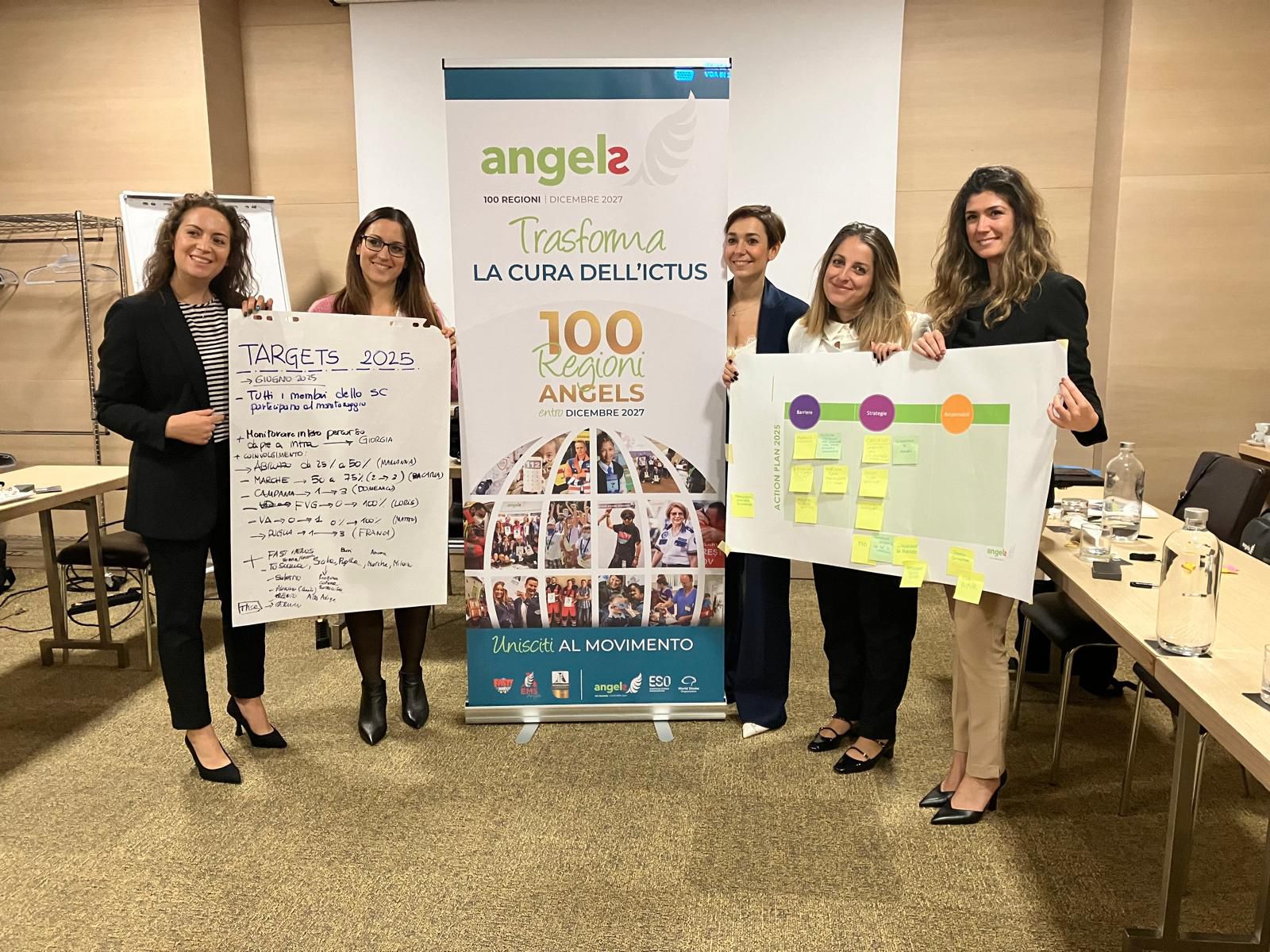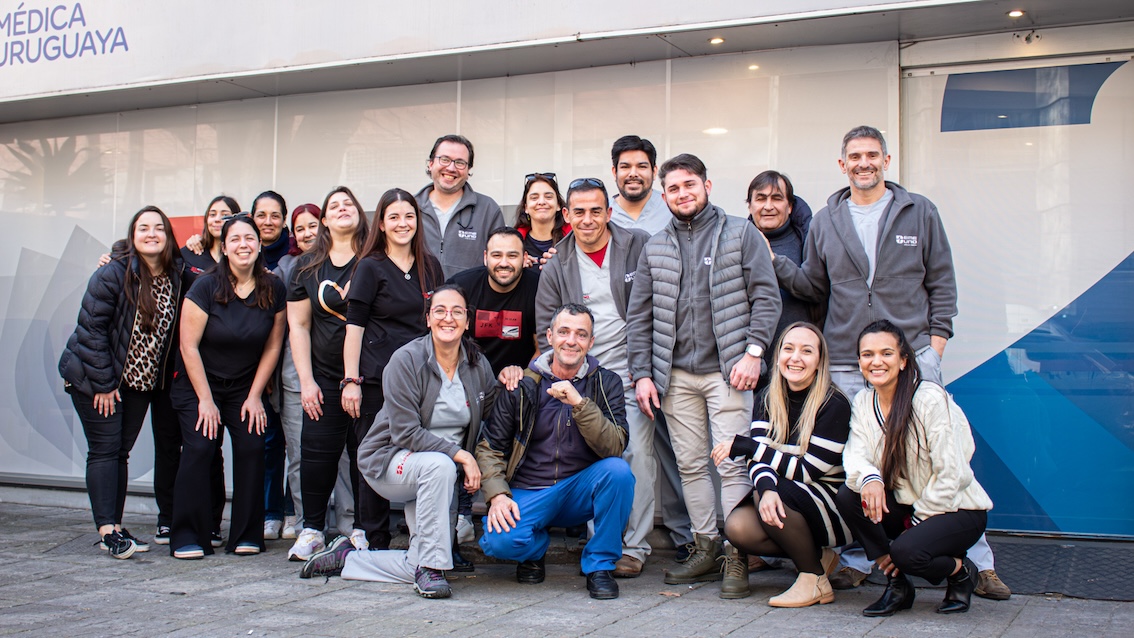While an ambulance is despatched to the caller’s location, the call is transferred to a SAME physician who is a specialist in telemedicine. The doctor performs a FAST evaluation, a screening tool for identifying stroke, after which SAME notifies the Hospital Donación Francisco Santojanni that a patient with suspected ischemic stroke is on the way.
It is 14 April 2021, the day it is announced that pandemic restrictions will be tightened in and around Buenos Aires in an attempt to rein in a worrying spike in Covid-19 cases. Schools are about to close, and a curfew imposed from 8pm. The ambulance and hospital staff are all wearing PPE.
But despite the public health crisis, the Angels team in Argentina has partnered with SAME to carry out a simulation that will serve both as training for ambulance and hospital staff, and to demonstrate the role of telemedicine in the first phase of caring for stroke patients.
Standing squarely behind this initiative is one of Buenos Aires’s most famous citizens, an emergency medical doctor and long-serving director of SAME who was recently honoured as an “Illustrious Citizen” by the Buenos Aires City Legislature for his tireless service to the city.
Dr Alberto Félix Crescenti (68) is a local hero, close to his community and loved by them in return. The people of Buenos Aires have been able to count on him through its most difficult moments – from deadly terrorist attacks in the 1990s to the 2012 Buenos Aires rail disaster and the República Cromañón nightclub fire in 2004.
The public hospital where the “patient” (Angels team leader Mariana Wolf) and her concerned “brother” (Angels consultant Javier Cichello) are swiftly delivered, likewise plays a vital role in the welfare of the community and has stepped up to the plate regarding stroke care since welcoming the Angels Initiative in 2019.
Under the leadership of stroke unit chief Dr Jessica Blasi, the hospital treated its first stroke patient in December 2019. Despite the pandemic and without continuous access to a neurologist, in 2020 the stroke team at Hospital Santojanni improved its average door-to-needle time to below 60 minutes. Its current DTN time is 53 minutes, with even greater improvement expected to follow simulation and other forms of muti-disciplinary training, including stroke nurse certification.
In the simulation video the clock starts ticking the second the patient is wheeled through the hospital entrance, and by the time recanalisation therapy is started, no more than 25 minutes have elapsed.
As the video draws to a close, the illustrious citizen has the final word. “This is a very important activity,” Dr Crescenti says, explaining that simulation provides valuable training for dealing with all emergency situations, including those made more complex by the pandemic. It’s an initiative that also enjoys the enthusiastic support of SAME’s chief of advisors, Pablo Pebe.
“It is really great to see our team reacting in time in a case of stroke,” Dr Crescenti says.


